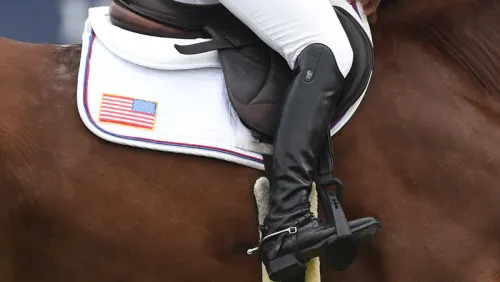Lexington, Ky. – US Equestrian is pleased to announce that it has published a Diversity, Equity and Inclusion Action Plan outlining 10 strategies to advance diversity, equity, and inclusion (DEI) in equestrian sport. These strategies seek to ensure a welcoming environment for people from under-represented and under-served communities, and evolve US Equestrian’s policies and practices to create a more inclusive sport for all participants and fans.
Ten Strategies to Advance Diversity, Equity and Inclusion
The strategies are as follows. Please refer to the full DEI Action Plan for more details about each item listed below.
| 1. | Community Riding Center Grants Program and Opportunity Fund |
| 2. | Inclusion Commitment Campaign |
| 3. | Free DEI training for members (to be completed on voluntary basis) |
| 4. | Required DEI training for USEF representatives |
| 5. | Rules and Regulations Equity Audit |
| 6. | New membership category for industry specialists |
| 7. | Comprehensive marketing plan harnessing the power of images and storytelling |
| 8. | Expanding USEF’s paid internship program |
| 9. | Best Practices Guide for show organizers |
| 10. | Spanish translated forms and website content |
Background and Process
Following the board of directors’ approval of a commitment statement and the development of a DEI Action Plan at the mid-year board meeting in June 2020, staff representatives from every department within US Equestrian set out to create a comprehensive action plan with input from external thought leaders representing diverse backgrounds, life experiences, and positions in the equestrian industry. Learn more about the external thought leaders here.
These groups worked in partnership to create the DEI Action Plan through surveys, a series of one-on-one interviews, and four “thought leader workshops” to assess the external perceptions and climate around DEI in equestrian sport and develop ideas for how US Equestrian can help move diversity, equity, and inclusion forward in the sport.
This process also included engaging a consultant, Ashland Johnson, president and founder of The Inclusion Playbook, to help guide the work. An attorney, equity and inclusion strategist, and former Division I athlete, Johnson has over a decade of civil rights experience working with social justice communities, advising sports leaders, and serving in leadership roles in advocacy organizations.
ADVERTISEMENT
Next Steps
The strategies will be rolled out in phases and are to be fully implemented in the next three to five years. Approaching this phased rollout strategically and with intention will help ensure sustainable, impactful change. US Equestrian staff will meet with the external thought leaders before the end of the year to share progress and seek feedback.
US Equestrian will continue to keep the membership informed about progress and opportunities to get involved.
As the National Governing Body, US Equestrian takes its role in this movement very seriously. DEI are essential to our vision of bringing the joy of horse sports to as many people as possible, and it must be woven into the fabric of the equestrian community and culture.
“All of us at US Equestrian are eager to make a difference,” said USEF CEO Bill Moroney in a letter emailed to the membership. “We believe that creating a welcoming community for our current and future members from traditionally under-represented and under-served groups should be intentional and strategic. These 10 strategies seek to bring more people into our sport and ensure the sustainability of our sport for the future.”
US Equestrian extends its gratitude and appreciation to the external thought leaders and the following advisors on the Review Committee (listed alphabetically):
Bobby Costello
Sally Ike
Tom O’Mara
Diane Pitts
Will Simpson
Judy Sloan
Ling Fu Wylie














